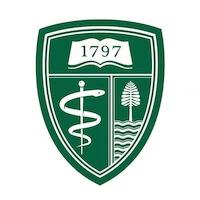Geisel Faculty Candidate Special Seminar
Speaker: Christopher McFarland, Ph.D., Postdoctoral Fellow, Stanford University
Please join us for an NCCC and Biomedical Data Science Bioinformatics and Computational Oncology Faculty Candidate Seminar with
Christopher McFarland, Ph.D., Postdoctoral Fellow, Stanford University on Wednesday, January 22 at 1:00 p.m., Auditorium H, DHMC.
Talk title: “Modeling cancer evolution: Integrating theory with experiment”
Hosted by: Brock Christensen, Ph.D.
Light refreshments will be provided on a first-come, first-served basis.
Talk Summary
Tumor progression is a stochastic, evolutionary processes. Understanding cancer's evolutionary dynamics is critical to deciphering cancer genomes, and to developing robust therapeutic strategies. In this talk, I will address three outstanding questions in the field: why do non-adaptive passenger mutations accumulate in conserved regions of the human genome?; what are the fitness effects of drivers and do their rare occurrence explain why most tumors fail to progress to cancer?; and to what extent does epistasis constrain the ordering in which tumors acquire drivers? I will also discuss my future efforts to model and measure the spatio-temporal dynamics of competing clones within a mouse tumor. The answers to all of these questions are achieved by integrating theoretical modeling, statistical genomics, and in vivo experimentation. In time, I believe that we will develop evolutionary theories to forecast cancer incidence and drug response.
Biography
Dr. McFarland is a postdoctoral fellow at Stanford University working in the labs of Dmitri Petrov (Evolution) and Monte Winslow (Genetics), where he is developing new multiplexed genome-engineering tools to quantitatively study cancer evolution in vivo. As a graduate student in Biophysics at Harvard University, Dr. McFarland worked with Leonid Mirny to understand the impact of deleterious passenger mutations on cancer. Dr. McFarland is particularly interested in integrating approaches to study tumor evolution: testing theoretical models experimentally, applying these theories to patient genomics data, and making experimental techniques more quantitative and genomically comprehensive.
Please also mark your calendars for these upcoming NCCC/BMDS Bioinformatics and Computational Oncology faculty candidate seminars:
Dr. Daniel Hollern - Wed., 1/29: Aud. H @ 11:00am
Postdoctoral Research Fellow, Cancer Genetics and Genomics
UNC Chapel Hill
Dr. Alvin Makohon-Moore - Mon., 2/03: Aud. H @ Noon
Postdoctoral Researcher, Quantitative Analyses of Cancer Evolution
Memorial Sloan Kettering Cancer Center
Dr. Siming Zhao - Wed., 2/12: Aud. H @ 11:00am
Postdoctoral Scholar, Computational Methods Development in Cancer Genomics
University of Chicago, Department of Human Genetics
Dr. Yijun Sun - Mon., 2/17: Aud. H @ Noon
Associate Professor, Department of Microbiology and Immunology
Jacobs School of Medicine and Biomedical Sciences
Dr. Yury Pritykin - Thurs., 2/27: Borwell 658W @ Noon
Research Associate, Computational and Systems Biology Program
Memorial Sloan Kettering Cancer Center
